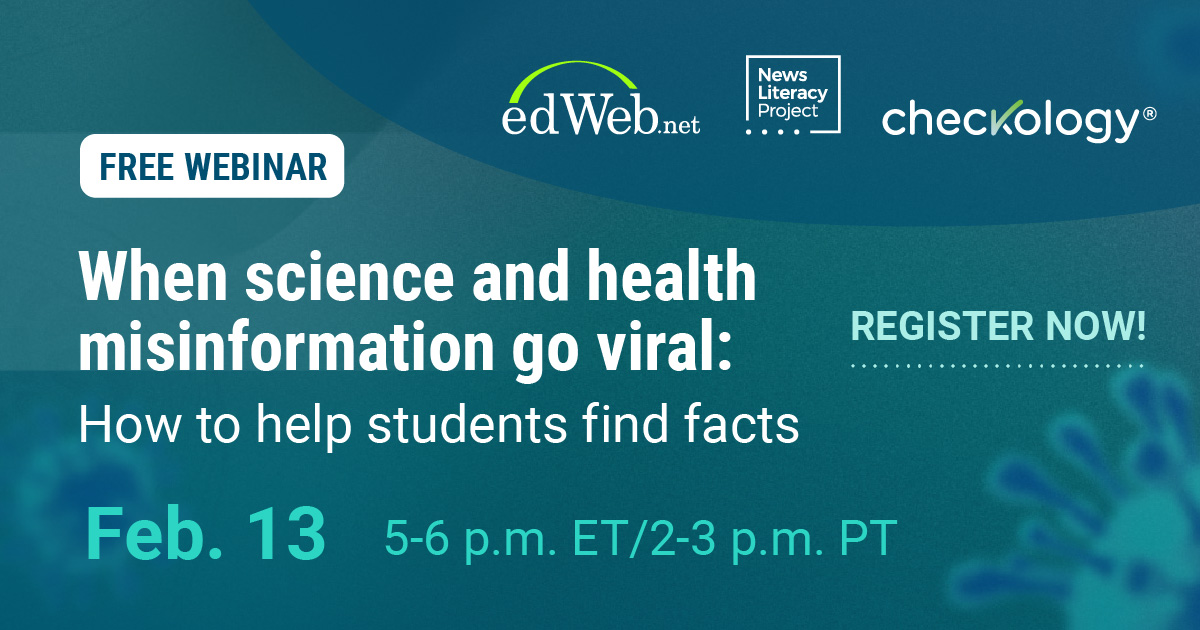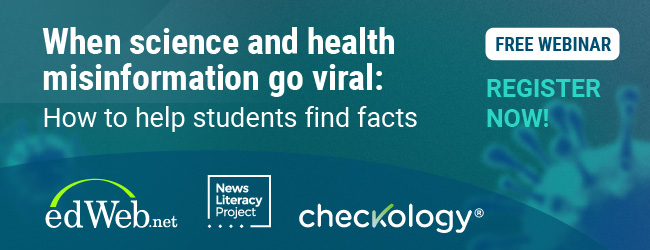
When science and health misinformation go viral: How to help students find facts
Register today
Tuesday, February 13, 2024
5:00 PM – 6:00 PM ET
This free webinar for educators, presented by the News Literacy Project and hosted by edWeb, explores strategies for teaching students news literacy — particularly through examples of science and health misinformation.
Tuesday, Feb. 13
5-6 p.m. ET/2-3 p.m. PT
Science and health misinformation is contagious – don’t let it go viral among your students!
As we continue to heal from a global pandemic, falsehoods presented as fact remain an issue in digital spaces such as social media. It is hard for young people to know what to believe, and misinformation confuses us all about the best steps to take for our own and our community’s health. Further, long histories of unfair and biased reporting and inhumane research practices have left certain communities often targeted by misinformation (with a distrust of news organizations and scientists, as well). Join us to learn about some of these past examples of misinformation’s impact on targeted communities. Then, explore steps you can take to help students avoid misleading claims and build confidence in making health decisions rooted in fact.
In this edWebinar, Brittney Smith of the News Literacy Project will host a panel conversation with special guests. They will discuss how to recognize when communities are being treated unfairly and share free resources for teaching your students tips to avoid falling for science and health misinformation. Relevant interdisciplinary lessons from the Checkology®️ virtual classroom — including “Be Health Informed” and “Harm & Distrust” — will be introduced, along with ideas for incorporating the lessons into your curriculum during Black History Month and beyond.
This edWebinar will be of interest to K-12 teachers as well as school and district leaders. There will be time for questions at the end of the presentation.
Don’t miss this unique opportunity – reserve your spot today!
(Can’t make it at this time but still interested? Register anyway, and we’ll email you the recording.)
